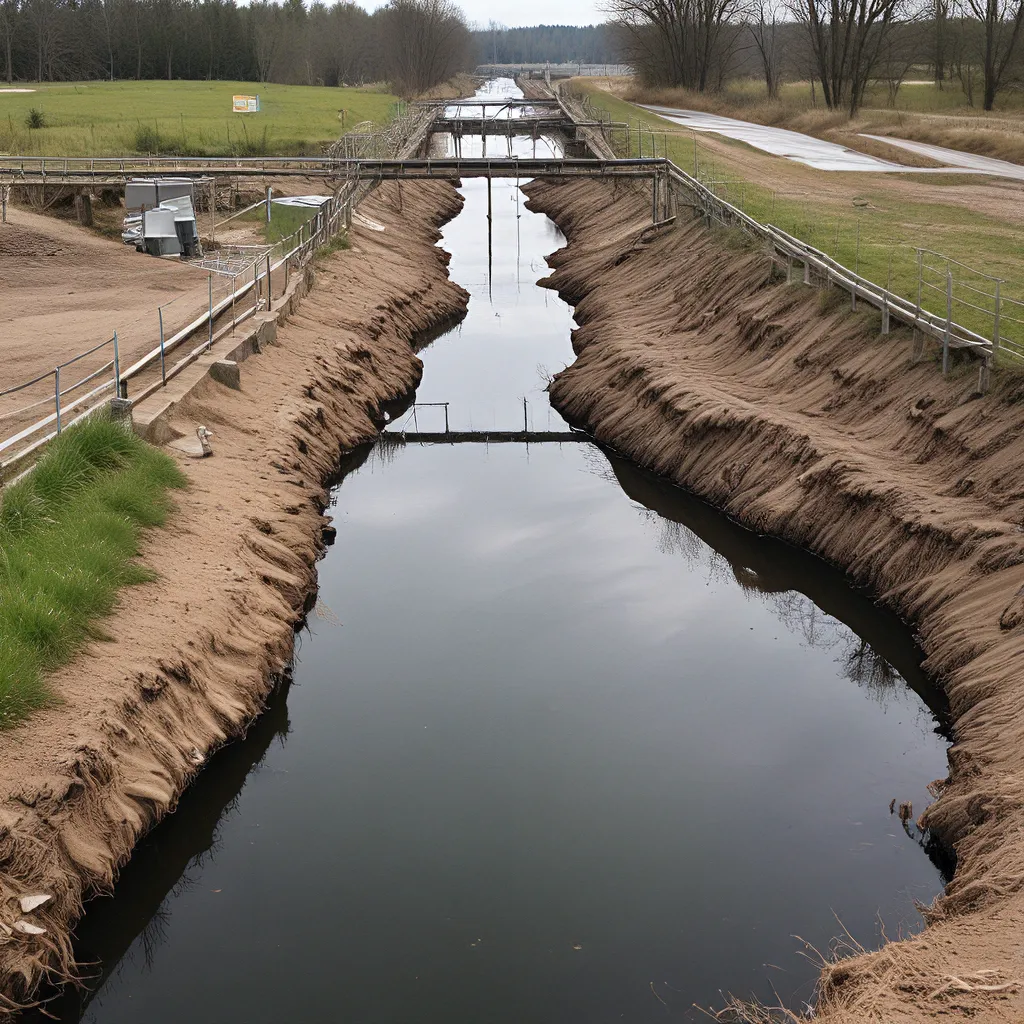
Let me tell you a story about how behavioral science is transforming the way we approach wastewater treatment. It’s a tale of small tweaks and gentle pushes that can lead to big, meaningful changes – all in the pursuit of a more sustainable future.
Imagine a world where we didn’t have to nag our loved ones to turn off the tap while brushing their teeth or take shorter showers. What if we could simply nudge them towards these water-saving habits without feeling like the fun police? Well, my friends, that world is closer than you might think, thanks to the power of behavioral science.
Unlocking the Power of Nudges
Nudging is all about understanding human behavior and designing the choice environment to make it easy for people to do the right thing. It’s not about forceful mandates or preachy lectures, but rather a gentle push in the right direction. And when it comes to water conservation and wastewater management, nudging can be a game-changer.
Smart Nudges, a digital platform that specializes in sustainable behavior change, is leading the charge. By combining insights from behavioral science with personalized nudges, they’re making it easier for individuals, businesses, and communities to adopt eco-friendly habits.
Here’s how it works: Smart Nudges analyzes the specific context and pain points of their clients, whether it’s a water utility company, a residential apartment complex, or a school district. They then craft customized nudges – think timely reminders, visual cues, or even gamified challenges – that are delivered directly to users’ inboxes, mobile devices, or even digital screens around the community.
The results speak for themselves. In a pilot project with the City of Helsingborg, Smart Nudges helped 2,400 parents and school staff from 25 schools to adopt more sustainable transportation habits. A 39% increase in active modes of transportation, like walking and cycling, exceeded the initial goal of 30%.
But it’s not just about transportation – Smart Nudges is making waves in the world of water conservation too. By encouraging households to reduce their water consumption through simple habits like turning off the tap while brushing teeth and taking shorter showers, the platform has helped to alleviate the strain on water resources and wastewater treatment plants.
Bridging the Gap Between Knowledge and Action
The beauty of behavioral science-driven nudging is that it doesn’t rely on complex educational campaigns or preachy lectures. Instead, it taps into the psychological biases and heuristics that shape our everyday decisions and behaviors.
Think about it this way: we all know that wasting water is bad for the environment, but how many of us actually remember to turn off the tap while brushing our teeth? It’s not that we don’t care – it’s just that the default behavior is to let the water run. By strategically placing reminders and creating visual cues, Smart Nudges makes it easier for us to bridge that gap between knowledge and action.
And the benefits go beyond just individual water-saving habits. Nudging can also be used to improve recycling and waste management among tenants, employees, and visitors, ultimately enhancing the purity of recyclables and reducing overall waste management costs.
Empowering Sustainable Choices
But nudging isn’t just about water conservation and waste management – it’s a versatile tool that can be applied to a wide range of sustainability challenges. Wastewater treatment companies can leverage behavioral science to encourage customers to adopt energy-efficient practices, reduce food waste, and even support the reuse of packaging.
The key is to tailor the nudges to the specific needs and preferences of the target audience. What works for a busy family might not resonate with a college student, and what resonates with a tech-savvy Millennial might not connect with a Baby Boomer.
That’s why Smart Nudges takes a personalized, data-driven approach, analyzing user behavior and preferences to deliver the most effective nudges. And the best part? It’s not a one-size-fits-all solution – the platform can be seamlessly integrated into existing apps, websites, and even workplace platforms, meeting users where they already are.
Embracing the Future of Sustainable Behavior
As we grapple with the pressing challenges of water scarcity, resource depletion, and climate change, it’s clear that behavioral science has a crucial role to play. Nudging isn’t a silver bullet, but it’s a powerful tool in our arsenal – one that can help us shift social norms, empower sustainable choices, and ultimately create a more environmentally responsible future.
So, the next time you’re contemplating ways to reduce your water usage or improve your recycling habits, remember the power of a gentle nudge. It might just be the push you need to make a meaningful, lasting impact on the world around you.